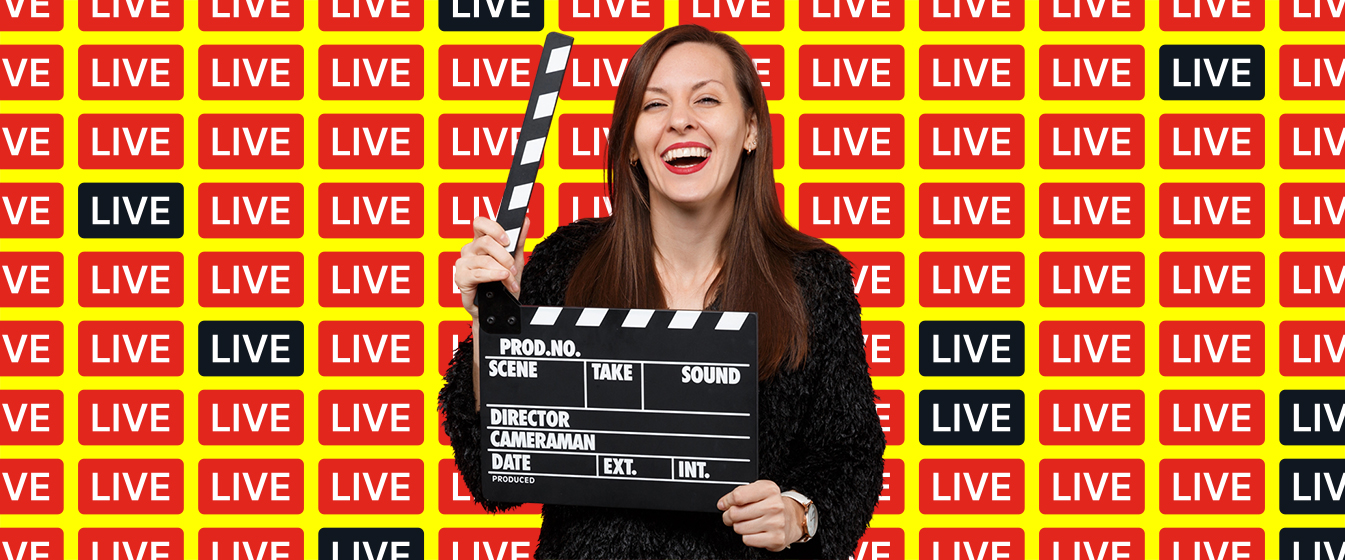Blog: Event management
Spot the difference: 5 ways to tell whether you’re working with an event tech vendor or a partner
25 September 2024 minute read

When it comes to achieving growth in your business events, one of the most important factors is establishing and maintaining relationships with the right partners.
In the event tech world, terms like ‘vendor’ and ‘partner’ are often used interchangeably when talking about services like ours. But what do they actually mean in practice? What’s the difference between an event tech vendor as opposed to a partner? And does it really matter? After all, it’s just software, right?
Wrong!
In a nutshell: vendors provide purely transactional services with no proactive idea generation, in-depth understanding of how your events run, your team workflows or your commercial and marketing objectives. You give them the money, they give you access to their platform and … that’s pretty much all she wrote!
At least until it’s time to renew.
Partners, on the other hand, immerse themselves in your corporate culture to understand the inner workings of your events so they can help you market and deliver them more efficiently over time for long-term growth.
TLDR: Every event platform likes to position themselves as a partner. Most are, in fact, vendors.
It’s worth taking a moment to consider the differences between the two approaches and what this might mean in practice for your events.
1 Vendors sell you the dream. Partners understand your reality.
We all know what an event tech pitch looks like: a seamlessly developed product is purchased and deployed, it works beautifully from Day 1, and everyone starts using it 100% of the time. Get cape. Wear cape. Fly.
Vendors sell you this operational utopia. They know it’s BS, but their job is to sell.
Partners are different. They understand the less flashy (often frustrating) but absolutely critical foundations that must be laid for each event team to get the best possible results from each deployment of their platform, to ensure long-term success. In a healthy partnership, your specific needs and challenges become part of the strategy, giving you transparency during each stage of the process.
2 Vendors push products. Partners solve problems.
Do you ever feel like your solutions suddenly turn into costly upgrades during each step of development? That’s when you know you are working with a vendor and not a partner.
Partners work to accommodate trends, yes. But they’re equally focused on proactively predicting how your needs – and their product – will have to evolve as the demands of your attendees and the markets you serve shift.
We regularly speak with clients who complain that their previous event platform didn’t do what they needed it to. Often, we know for a fact that their old platform could have done that thing, but clearly it was too difficult / opaque for them to achieve on their own.
Features are useless unless you understand how to benefit from them. Partners focus on this fact. Vendors don’t.
3 Vendors customise their product. Partners help you customise your workflow.
Customisation has become a buzzword for vendors. Everyone wants to make you feel like you’re getting a bespoke solution. But in reality, they have software that works a certain way, and they need you to buy it.
Your current workflows aren’t as efficient as you’d like them to be, and vendors know exactly how to spin that into a sale by offering extensive customisations and promoting their solution as ‘flexible’. But just because a product can do something, doesn’t mean it should.
A partner, on the other hand, will be invested in helping you understand your event management processes from the ground-up. They’ll work closely and patiently with you to iterate processes and automations that get you where you want to be in the long term.
Because they listen, a partner will be able to guide you in implementing the right technical solutions that repay your investment over time.
A vendor is more likely to leave you to make what you can out of their product for a year or so, then they’ll knock on your door with another custom pitch once they smell smoke.
4 Vendors are driven by the deal. Partners are driven by the relationship.
Vendors are run on short-term sales goals. Partners are looking to build relationships that lead to lasting growth and development.
A vendor’s main goal is to sell their products and services and provide them at the bare minimum level described in your agreement – thus, the focus of these contracts tends to be on limitation of liability and indemnification.
Partners offer open conversation, disagreement, and, most importantly, their time. They’re comfortable with a little bit of friction because they know it’s often necessary to pinpoint problems and transform them into opportunities. A partner will work actively to do more than just check boxes.
Vendors tend to be owned by private equity and under constant pressure to sell, over-promise and cut costs wherever possible.
If you want to understand whether you’re dealing with a vendor or a partner, a good rule-of-thumb is to look at the number of people they have working in sales and business development, versus the number they have in engineering and support roles.
5 Vendors tap-dance around their failures. Partners learn from them.
Vendors, by nature, fear accountability – they don’t want to take ownership of their mistakes and would rather just move on to new opportunities rather than spend the time and money to make things right.
Partners will not only own their mistakes, they’ll try to learn as much from them as possible. Partners don’t sweep oversights under the rug in the hope of hiding them from you, or deny a mistake was even made in the first place. Instead, they see a gap between your expectations and their platform as an opportunity to improve either the product itself, or their training.
Again, partners are in it for the long-haul.
Unfortunately, in today’s era of ‘impatient capital’ the market for event technology is dominated by the imperative to deliver short-term returns to shareholders by slashing costs everywhere (except sales), and by buying and shuttering competitors.
In other words, this is very much the era of the vendor and it’s not good news for event owners.
Not all supplier relationships are created equal.
Clients tell us that our approach to partnership at AttendZen is rare. But for us, it is the only way we can think to work with people, and we believe it leaves everyone better off in the long-term – including us.
If you’re interested in working with an event tech partner that’s committed to supporting you in reaching the growth, revenue, and efficiency you want to see from your events, we’d love to speak with you.



